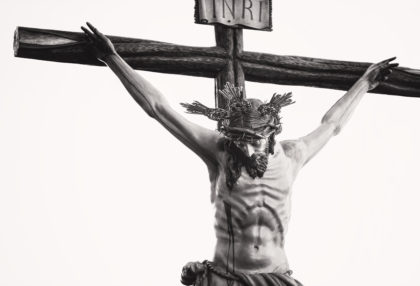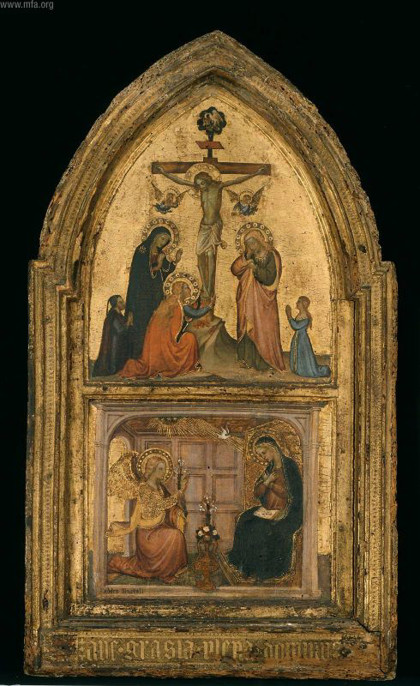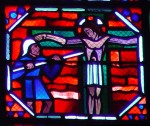We are delighted that Bobby Gross, author of Living the Christian Year and who has contributed previous series during Lent and Advent, has agreed to write this new series of Lenten reflections on the theme of humility. These weeks of Lent have brought us to Good Friday and the foot of the cross, where Jesus hangs in bleeding torment, where he cries out in uncomprehending desolation, where he finally exhales his final breath. Jesus experiences this utter humiliation because he had chosen to humble himself utterly … [Read more...] about Lenten Humility: Falling to the Ground Before the Cross
good friday
Lenten Reflections: Good Friday
This is the seventh in a series of reflections through the season of Lent, written by Bobby Gross, who contributed the reflections for this past Advent Season. The first appeared on Ash Wednesday. You can browse the second, third, fourth, fifth, and sixth reflections by following the links. The whole journey of Lent brings us to this weekend, holy in the Christian calendar, the Great Three Days, the Paschal Triduum, this Good Friday--Holy Saturday--Easter Sunday that plunges us into the … [Read more...] about Lenten Reflections: Good Friday
Book Review: A Glorious Dark, by A. J. Swoboda
A Glorious Dark: Finding Hope in the Tension Between Belief and Experience by A. J. Swoboda. Grand Rapids, MI: Baker Press, 2015. Summary: An exploration of living in the tension of the glorious hope of Christian faith and the dark, unsettling realities of our lives through reflections grouped around the Friday, Saturday, and Sunday of the Triduum of Holy Week. A great book to read reflectively during Holy Week [April 9 - 16, 2017]. … [Read more...] about Book Review: A Glorious Dark, by A. J. Swoboda
Holy Week: Contemplating an Uncanny Calendrical Coincidence
This week, we'll have what may be the last opportunity in our lifetimes to experience the intersection of Good Friday and the feast of the Annunciation. We invite you to read Kevin Birth's thoughtful exploration of this calendrical coincidence below, and to consider meditating on John Donne's poetic exploration of the same coincidence tomorrow, on Good Friday itself. This post came about as a result of a conversation between Andy Walsh, author of ESN's Science Corner, and Kevin Birth. See previous posts here, here, and … [Read more...] about Holy Week: Contemplating an Uncanny Calendrical Coincidence
Good Friday
Ah, Holy Jesus Ah, holy Jesus, how hast thou offended, that we to judge thee have in hate pretended? By foes derided, by thine own rejected, O most afflicted! Who was the guilty? Who brought this upon thee? Alas, my treason, Jesus, hath undone thee! 'Twas I, Lord Jesus, I it was denied thee; I crucified thee. Lo, the Good Shepherd for the sheep is offered; the slave hath sinned, and the Son hath suffered. For our atonement, while we nothing heeded, God interceded. For me, kind Jesus, was thy … [Read more...] about Good Friday




